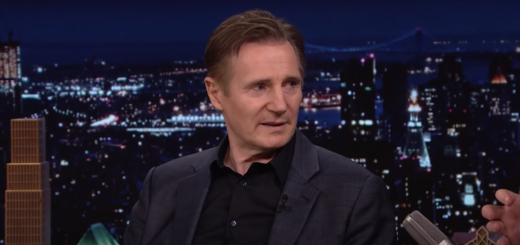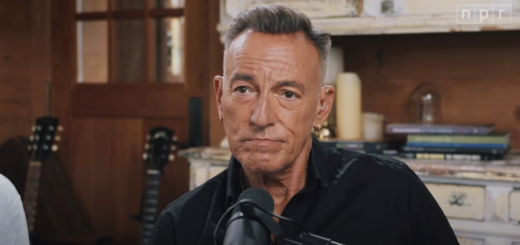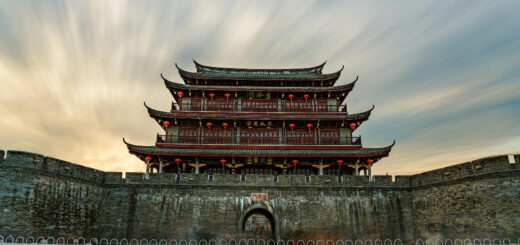What Does a Diplomat Do?

Diplomacy stands as the cornerstone of interstate relationships. At its core, diplomacy involves the art of communication and negotiation between nations. Diplomats act as intermediaries, promoting collaboration and resolving conflicts through dialogue. Their efforts span various domains, from politics and economics to culture and security.
The Vital Role of a Diplomat
Diplomats don many hats, serving as representatives of their home countries on the global stage. They are entrusted with safeguarding their nation’s interests while fostering amicable ties with other nations. This intricate balancing act demands tact, cultural sensitivity, and an acute understanding of international politics.
Key Responsibilities
1. Negotiations and Treaty Development
Diplomats excel in the art of negotiation. They convene to discuss treaties, trade agreements, and international regulations. The goal is to find common ground and formulate terms that benefit all parties involved. This demands exceptional communication skills, patience, and the ability to navigate complex legal frameworks.
2. Conflict Resolution
A diplomat’s skill shines brightest when mediating conflicts. They facilitate dialogues between conflicting parties, seeking to de-escalate tensions and find peaceful solutions. This involves understanding the root causes of disputes and proposing compromises that lead to lasting resolutions.
3. Cultural Exchange and Public Diplomacy
Diplomats foster cultural exchange, showcasing their nation’s heritage through art exhibitions, performances, and international events. This “soft power” approach builds bridges and enhances cross-cultural understanding, creating an atmosphere of mutual respect and collaboration.
Diplomatic Strategies
Diplomacy employs an array of strategies to achieve its objectives:
1. Track II Diplomacy
Track II diplomacy involves unofficial dialogues between non-governmental actors. These discussions often pave the way for official negotiations, acting as crucial precursors to formal agreements.
2. Shuttle Diplomacy
Shuttle diplomacy sees diplomats moving between conflicting parties, relaying messages and proposals. This method is especially effective in high-stakes negotiations where face-to-face meetings may be challenging.
Challenges and Skills
1. Multilingual Proficiency
Diplomats often communicate in various languages, enabling effective communication with counterparts from different linguistic backgrounds. Language proficiency enhances negotiation outcomes and fosters genuine rapport.
2. Adaptability
The diplomatic landscape is fluid, requiring diplomats to adapt swiftly to changing circumstances. Flexibility in approach is essential to navigate unexpected challenges and seize new opportunities.

The Diplomat’s Toolkit: Code of Conduct and Ethics
Diplomats adhere to a strict code of conduct and ethics, embodying integrity, transparency, and respect. This ensures that their actions uphold the values of their nation and contribute to the global well-being.
Traditional Diplomacy vs. Modern Diplomacy
| Aspect | Traditional Diplomacy | Modern Diplomacy |
|---|---|---|
| Communication | Primarily face-to-face interactions | Utilizes digital platforms extensively |
| Speed of Action | Slower pace due to limited technology | Rapid responses facilitated by tech |
| Information Access | Reliant on official channels | Accesses vast information resources |
| Public Outreach | Limited due to lack of connectivity | Engages global audience through media |
Diplomatic Immunity: Understanding Its Significance
Diplomatic immunity is a cornerstone of diplomatic practice, granting diplomats legal protection from the host country’s laws. This privilege enables diplomats to carry out their duties without fear of legal repercussions in the host nation.
The Origins of Diplomatic Immunity
The concept of diplomatic immunity traces back to ancient civilizations, where emissaries were granted safe passage to negotiate treaties. This principle has evolved over centuries and is now enshrined in international law.
How Diplomatic Immunity Works
Diplomats enjoy various forms of immunity, including:
- Immunity from Jurisdiction: Diplomats are exempt from the host country’s legal jurisdiction, meaning they cannot be prosecuted or sued in local courts;
- Inviolability of Premises: Diplomatic missions, such as embassies, are considered inviolable. Host countries cannot enter these premises without consent;
- Personal Immunity: Diplomats are immune from arrest, detention, and prosecution. However, this immunity can be waived by their home country.
Controversies and Misuses of Diplomatic Immunity
While diplomatic immunity serves crucial diplomatic functions, it has been at the center of controversies. Instances of diplomats abusing their immunity have sparked public outrage and debates over the need for reform.
Diplomatic Challenges in the 21st Century
In today’s interconnected world, diplomats face novel challenges:
1. Digital Diplomacy
Digital diplomacy leverages technology for diplomatic objectives, involving social media, virtual meetings, and online campaigns. It enhances outreach and engagement but also demands cybersecurity measures.
2. Climate Diplomacy
Addressing global challenges like climate change requires diplomatic cooperation. Climate diplomats negotiate agreements and commitments to mitigate environmental risks on a global scale.
3. Economic Diplomacy
Economic diplomacy focuses on promoting trade, investment, and economic partnerships between nations. It involves negotiations for favorable trade terms and the attraction of foreign investments.
4. Humanitarian Diplomacy
Humanitarian diplomacy addresses crises such as conflicts, natural disasters, and displacement. Diplomats work to secure humanitarian access, negotiate ceasefires, and provide aid to affected populations.

Diplomatic Ranks and Hierarchy: Navigating the Diplomatic Corps
The world of diplomacy is structured with a well-defined hierarchy of ranks. Understanding diplomatic titles and roles provides insights into the dynamics of international interactions and negotiations.
Diplomatic Ranks and Titles
Diplomatic ranks vary across countries, but common titles include:
- Ambassador: The highest-ranking diplomat, representing their home country and leading diplomatic missions;
- Minister: A senior diplomat responsible for policy implementation and representing the country in less formal settings;
- Chargé d’Affaires: The head of a diplomatic mission in the absence of an ambassador;
- Counselor: An expert in specific areas, providing advice on policy matters;
- Attaché: An official specialized in administrative, cultural, economic, or military matters.
The Protocol of Diplomatic Etiquette
Diplomatic etiquette governs the behavior of diplomats in formal settings. This includes rules for addressing officials, seating arrangements, and gift-giving customs. Adhering to these protocols ensures smooth interactions and demonstrates respect for cultural norms.
Diplomacy and International Organizations
Diplomats play crucial roles in international organizations such as the United Nations (UN), European Union (EU), and World Trade Organization (WTO). They negotiate agreements, represent their countries’ interests, and contribute to global governance.
Traditional Diplomacy vs. Track II Diplomacy
| Aspect | Traditional Diplomacy | Track II Diplomacy |
|---|---|---|
| Participants | State representatives and diplomats | Non-governmental actors and experts |
| Formality | Formal negotiations and treaties | Informal discussions and dialogues |
| Agenda Setting | National interests and policies | Building consensus and brainstorming |
| Transparency | Publicly known negotiations | Confidential, behind-the-scenes talks |
| Mediation | Officially recognized mediations | Unofficial efforts to foster dialogue |
The Evolving Role of Diplomats in Cyberspace
The digital era has introduced a new dimension to diplomacy. Cyber diplomats engage in safeguarding national interests, mitigating cyber threats, and shaping international norms in the virtual realm.
Cybersecurity Diplomacy
Cyber diplomats work to prevent cyberattacks, enhance digital infrastructure, and establish norms for responsible state behavior in cyberspace. They negotiate agreements to prevent cyber conflict and collaborate on global cybersecurity challenges.
Digital Diplomacy in Action
Digital diplomacy involves leveraging social media and online platforms to communicate with foreign populations, engage in public diplomacy, and promote a nation’s image. Diplomats use Twitter, Facebook, and other platforms to engage with the global audience directly.

Conclusion
Diplomats are the unsung heroes of international relations, working tirelessly to bridge gaps, resolve conflicts, and forge alliances. Their skillful negotiations and dedication pave the way for a more peaceful and interconnected world.
FAQs
Diplomats typically hold degrees in international relations, political science, or related fields. Language proficiency and strong interpersonal skills are also crucial.
Yes, diplomats often move between postings every few years, allowing them to gain diverse experiences and insights.
Diplomats play an advisory role, offering insights to policymakers based on their experiences and observations on the international stage.
While negotiation is a core aspect, diplomacy also involves cultural exchange, public outreach, and building international networks.
Technology has revolutionized diplomacy by enabling rapid communication, information sharing, and global engagement.


